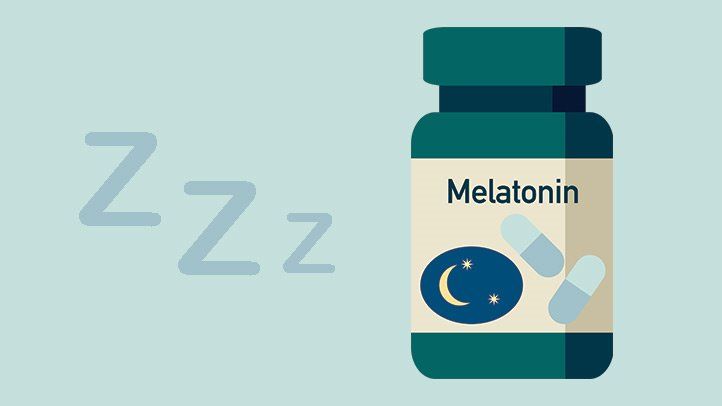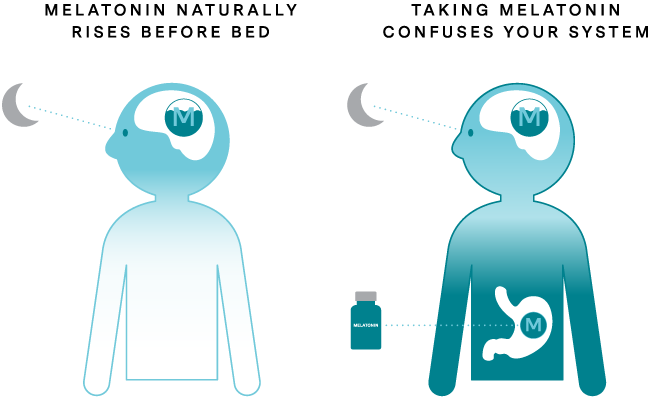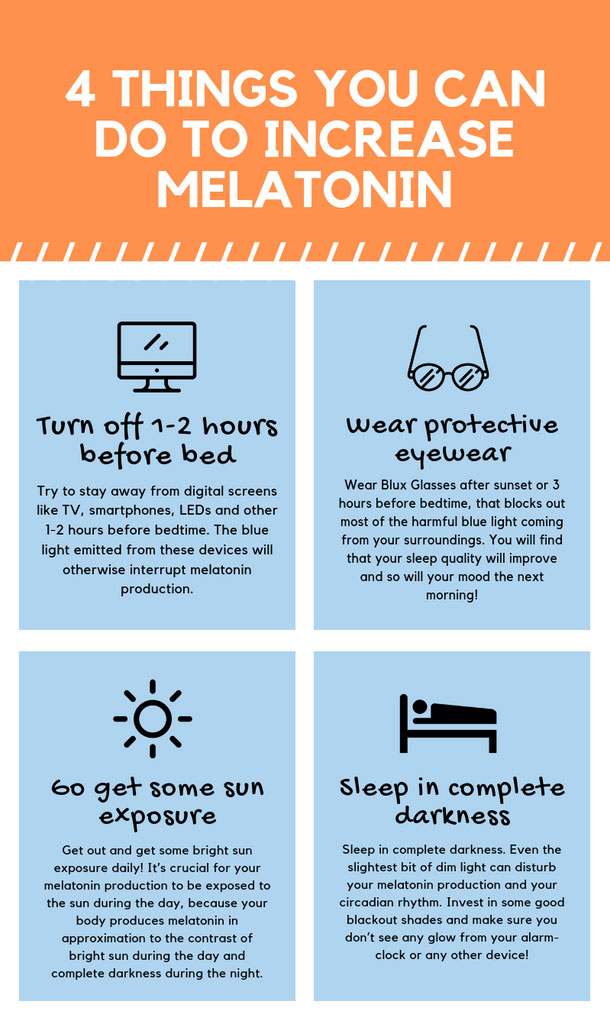Melatonin for Sleep: Does It Work?

1.What is melatonin?
Melatonin is a hormone that your body makes naturally . It’s produced by the pineal gland in your brain but also found in other areas, such as your eyes, bone marrow, and gut.
It’s often called the sleep hormone, as high levels can help you fall asleep.
However, melatonin itself won’t knock you out. It simply lets your body know that it’s nighttime so that you can relax and fall asleep more easily.
Melatonin supplements are popular among people with insomnia and jet lag. You can buy melatonin supplements without a prescription in many countries.
In addition to its benefits for sleep, this hormone has strong antioxidant and anti-inflammatory effects .

2.What is the Appropriate Dosage of Melatonin?
There is no consensus about the optimal dosage of melatonin although most experts advise to avoid extremely high dosages. In studies, dosages range from .1 to 12 milligrams (mg). A typical dose in supplements is between one and three milligrams, but whether this is appropriate for any specific person depends on factors like their age and sleeping problems. You may find melatonin in dosages of micrograms (mcg), 1000 mcg is equivalent to 1 mg.
Some people experience daytime sleepiness when using melatonin as a sleep aid. If you experience this, it could be that your dosage is too high. It’s advisable to start with the lowest dosage possible and work your way up gradually under the supervision of your doctor.
The AAP advises against dosages above 3-6 mg for children and states that many young people respond to small doses of .5 to 1 mg. Some studies have found benefits to lower doses in adults as well.
Oral supplements can bring the levels of melatonin in the blood to levels much higher than is normally produced by the body. For example, dosages between 1-10 mg can raise melatonin concentrations to anywhere from 3 to 60 times typical levels7. For this reason, people taking melatonin should use caution before ingesting high doses.

3.Know when to stop.
“If melatonin for sleep isn’t helping after a week or two, stop using it,” says Buenaver. “And if your sleep problems continue, talk with your health care provider. If melatonin does seem to help, it’s safe for most people to take nightly for one to two months. “After that, stop and see how your sleep is,” he suggests. “Be sure you’re also relaxing before bed, keeping the lights low and sleeping in a cool, dark, comfortable bedroom for optimal results.”
4.Skip melatonin for sleep if …
Do not use melatonin if you are pregnant or breastfeeding or have an autoimmune disorder, a seizure disorder or depression. Talk to your health care provider if you have diabetes or high blood pressure. Melatonin supplements may also raise blood-sugar levels and increase blood pressure levels in people taking some hypertension medications.
